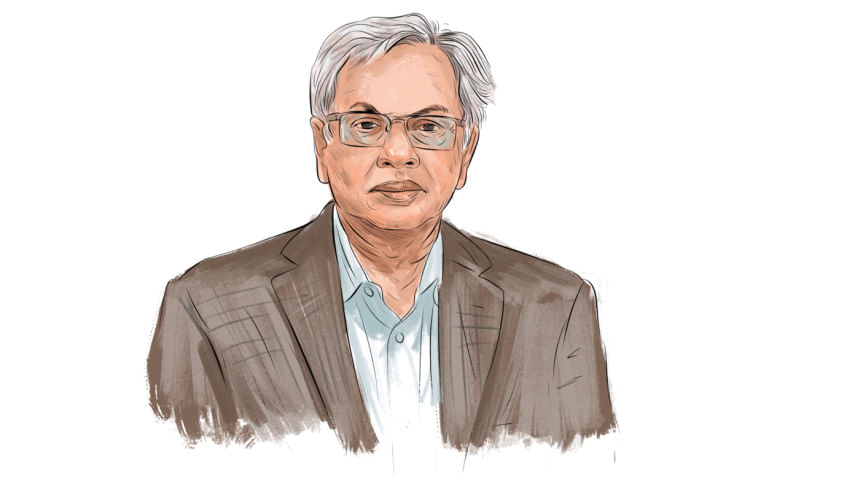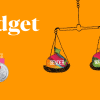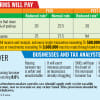Shift focus to services from infrastructure spending

Bangladesh's approach to budgeting for health and education has come under sharp scrutiny, as decades of allocations have primarily gone towards construction. Meanwhile, the core of these sectors, service delivery, has been historically neglected.
"If you really look into the allocation and eventual utilisation, most of these sectors failed to invest or at least spend what they were allocated, primarily because all of the allocation for the last almost 40-50 years was mostly for construction," Dr AK Enamul Haque, director general of the Bangladesh Institute of Development Studies (BIDS), said in an interview.
"So, it's not education – I would rather say it's a construction budget," he added.
Haque pointed to the example of a newly built hospital in Sylhet with over 200 beds that remains idle due to a lack of operational staff.
"The hospital is complete, but it is not running because allocation has not been given for doctors yet," he said.
He argued that the problem lies in a fundamental misunderstanding of what the education and health sectors are meant to deliver.
"These are service sectors, and service sector means someone is providing the service. These services are provided by doctors, nurses, and teachers. So, if you're allocating only for construction, that's not a budget allocation for the health sector as such."
Haque's remarks come ahead of the national budget for fiscal year 2025-26, to be tabled by the interim government.
He said that while the interim government's room to manoeuvre may be limited, it should seize the moment to set a new standard in budget formulation.
"As a new government, they should set a certain trend, and that this is how a budget should be made. I would be looking forward to seeing an ideal budget from them."
Haque stressed that an "ideal" budget is not about spending more money but about spending more effectively.
He highlighted numerous cases where hospitals are equipped with advanced machinery that sits idle for months or years.
"A lot of the time, we find that machines were purchased with public money, and many news reports have shown that while the machines are there, no operators were appointed."
Even when facilities exist, service delivery fails due to a lack of skilled human resources.
"I went to one school where I found out they have a six-storey building, but there's only one teacher. So, this is not a service."
He said that a part of the problem lies in the separation between the agencies building infrastructure and those delivering services.
Most schools and hospitals have little involvement in the planning or construction of their own facilities. In most cases, hospitals are built by the Public Works Department, while the Department of Public Health may take charge in rural areas. Similarly, school infrastructure is usually handled by a separate department, often without coordination with service providers.
This leads to a misalignment between what is built and what is needed.
QUALITY BUDGET
Haque repeatedly emphasised the need for a new understanding of "budget quality".
"Quality is not just money. Quality is a coordination between those who are providing the service and the facilities," he said.
He also pointed to the lack of attention to primary education.
"If you have 30 students in a class, it's impossible for a teacher to teach everything. Particularly at the primary level, where a teacher has to show students how to write."
On health services, he cited India's example to argue for stricter rules regarding dual practice.
"If you are serving as a doctor in a government hospital, the Indian government does not allow you to go to a private hospital and practise," he said.
He said such a reform would strengthen service delivery and ensure that government hospitals are fully operational.
He warned against simply increasing budget sizes without reforming the underlying structure.
"We have constructed the buildings. The next logical step is to improve the teacher-student ratio and ensure that services are delivered."
The discussion also covered agriculture, where Haque cautioned against reducing subsidies, saying, "That's not a very good step."
"What multilateral lenders are trying to say is that you should improve your tax collection before offering subsidises," he said.
He also argued that the real challenge in revenue collection is the narrow base of taxpayers.
"Now if you raise taxes, honest taxpayers will simply leave the country. Those who are able will say, 'Forget about taxes. I will leave'," Haque said.
Against this backdrop, he warned of a growing trend among skilled professionals to leave the country.
"Remember, we now have what I have been saying is a nomad digital visa. An independent, able individual can go anywhere in the world now to work, and many countries are attracting them."
Haque said that instead of focusing on the tax-GDP ratio, the government should focus on expanding the number of taxpayers.
"I think the whole concept should be changed to tax net, which means asking where are the people who are supposed to pay taxes and why are they not paying taxes," he added.
He said the fault lies partly with the National Board of Revenue (NBR). "Their automation did not work. We have people who are supposed to register their cars with TIN numbers. But some did it with fake TIN numbers."
"Providing fake TIN numbers for vehicle registration is a crime. And a part of the BRTA is complicit in this crime."
Rather than expanding the tax network to rural areas, he argued that the NBR should first prove its success in Dhaka.
"Dhaka city has 1 crore people -- which means roughly 25 lakh households. At least 50 percent of them should actually pay taxes. Where are they?" Haque asked.
On energy, Haque criticised inefficiencies in the current system, including unused generation capacity and poor distribution.
"You have 28,000-megawatt production capacity. You don't have 16,000-megawatt above distribution capacity. Your first step is to improve the distribution capacity," he said.
He also said Bangladesh needs a rational energy policy that defines who gets uninterrupted electricity and at what cost.
"You cannot make the same quality of electricity everywhere in Bangladesh. That will be a very costly solution," he added.
Haque also challenged the current subsidy structure.
"Right now, we are subsidising producers. If you look at electricity, we should be subsidising consumers rather than producers. We have capacity charges. We're giving bills, unaccounted bills, and nobody is held accountable."
He said that contracts in the gas sector are particularly problematic.
"Bangladesh is purchasing Bangladeshi gas at an international price. Obviously, there will be a subsidy. We made contracts with the gas sector, which were not fair," Haque added.
On foreign-funded development projects, Haque said the real issue is not a lack of money, but poor implementation. "In the last 15 years, we spent more money than we could. In fact, we had the largest budget increase. We spent on average 85-86 percent of the budget."
He said the problem is poor project design, political manipulation, and a preference among officials for local funding.
"Many government officials were interested only in government funding because it's less restrictive. Donor funds come with conditions and you have to follow the rules."
Looking ahead, he said the interim government should not be burdened with unrealistic expectations over the next budget.
"A one-year budget cannot be used to change the economy. That will be the wrong expectation. What it can do is set a thinking process."
Haque said that above all, Bangladesh's path forward lies in building institutions and the rule of law. "We need to create an environment of the rule of law. That's very important. And we need a government where honest and good officers are protected."


 For all latest news, follow The Daily Star's Google News channel.
For all latest news, follow The Daily Star's Google News channel. 








Comments